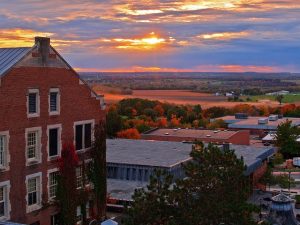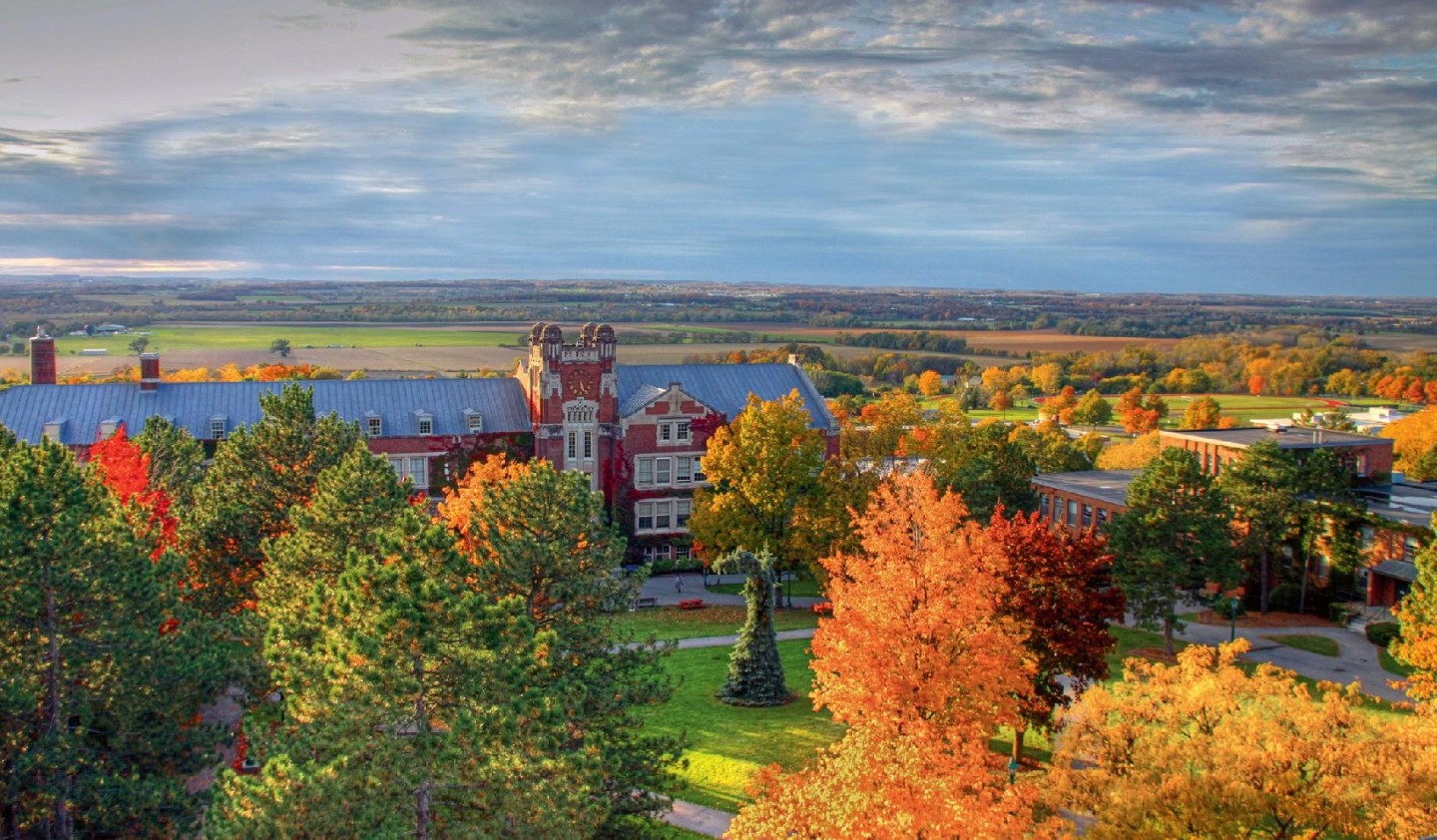College in the Boonies
For starters, there will be nothing to do and no, that won’t help you focus on your studies.
By Maya Merberg, SUNY Geneseo
One cold, snowy winter evening, I gazed out the dorm window to see a bustling city scene of skyscrapers dotted with window lights, honking cars and shop-lined streets as far as the eye could see.

I wasn’t in my own dorm—I was visiting a friend at the University of Buffalo, and this was a totally unfamiliar view. I go to a small, public liberal arts college in upstate New York. My school is situated in a town that Wikipedia calls “quite rural,” though my peer prefer the phrase “bumblefuck nowhere.”
Instead of the hum of industry, when I look out the window I see farmland stretching to the horizon. The total town population is just upward of 10,000 people, but the school’s population alone is almost 60 percent of that number.
Attending a school like this comes with its own unique set of challenges and/or advantages, so here’s what you learn going to school in the middle of nowhere.
Things to Do
If you don’t want to read the rest of this paragraph, here’s a summary: nothing.
Before I left for college people familiar with the school kept telling me that there isn’t much to do for fun there. “It doesn’t matter,” I thought, “I’ll be focused on my studies the whole time anyways.”
I was wrong.
In my retrospectively astonishing level of naiveté, I’d assumed that the lack of entertainment and activities would force me to go to the library every chance I got just to fend off boredom. Instead, I find other ways to procrastinate, like drinking.
Nightlife
Stemming, probably, from this inherent boredom, binge drinking is rampant on campus. The student body has suffered a disproportionate number of alcohol related incidents—each one seeming to outdo the last in severity and craziness.
One might think that there would be a lively bar scene to accommodate the demand, but the village is a little too quaint to support a bunch of concentrated areas of drunkenness. Of course, there are a couple bars close to campus, but they are mostly for 21 and up. Furthermore, the selection is increasingly narrowing as bars close or burn down.
Traveling to the nearest city for better nightlife is an option, but I live almost an hour away from campus and the closest city happens to be the one that I’m from.
Nothing kills your night like drunkenly running into your parents out on the town.
If you don’t want to deal with bars and nightclubs you’re left with frat parties, and parties hosted by other organizations. Unfortunately, because of the frequency of alcohol related injuries and other accidents, police crack down on house parties pretty strictly. The Social Host Law makes it so that if a host of a party serving minors is caught, the violation will be on their records and could impede their ability to get professional jobs. I hear that even “It was lit, though,” does not hold up in court or to employers.
So, open parties are rare, and it’s almost impossible to get into a party if you’re not in an organization, which means a majority of students are in a fraternity or sorority or play a sport. “Who do you know here?” remains a staple of the student body’s lexicon.
Academics
Honestly, the quiet, underpopulated area can be conducive to doing well academically. Stepping out of the dorm early on a Sunday and seeing literally not a soul outside, one might as well head to the library. If you go to a small school, you’re familiar with the constant advertising of small classes and close relationships with professors. It’s true that fewer people makes for an easier time getting to know professors, which makes it easier to succeed in their classes. Also, if you missed the assignment for next week’s class, you’ll definitely see someone from class either at the dining hall or out on the weekend, etc., who you can ask.
Many of my professors even live in the town, which means they live within a couple miles of their students and it’s not uncommon to see them out with their families, maybe at Walmart or one of the seven fast food joints (actually, that about covers all the businesses we have).
Student Body
The makeup of the student population doesn’t quite reflect the same composition of the town’s population, which is very white and homogeneous, though there is a large percentage of middle class white students.
Despite this, diversity exists but is just not as visible. People say that when you go to college you’ll meet all different kinds of new people, and this still holds true if you go to a small school in a small town.
My friends at school are still quite different from my friends at home, because we came from completely different places and upbringings. My school happens to be one of the better public schools in the state, so it attracts people from different parts of New York, New York City, and from different places in the country and world.
Furthermore, the students are united from being kind of stuck in this strange one-mile diameter of a town, creating a sense of camaraderie. One of the best aspects of my school is this tight knit community feel.
Most people look out for each other—I feel safe walking home alone at night and secure leaving my laptop in the library for an hour.
I may always meet someone who’s hooked up with the same person I have, but I’ll also always meet someone who hates the same professor I do or loved the same class I did.
Sometimes I may feel like I should’ve chosen a bigger school in a city so I’d have more networking opportunities or more options for where to eat, or whatever. But when I walk through campus knowing that I have instant common ground and shared experiences with everyone I pass, I remember why I chose my school in the first place.









